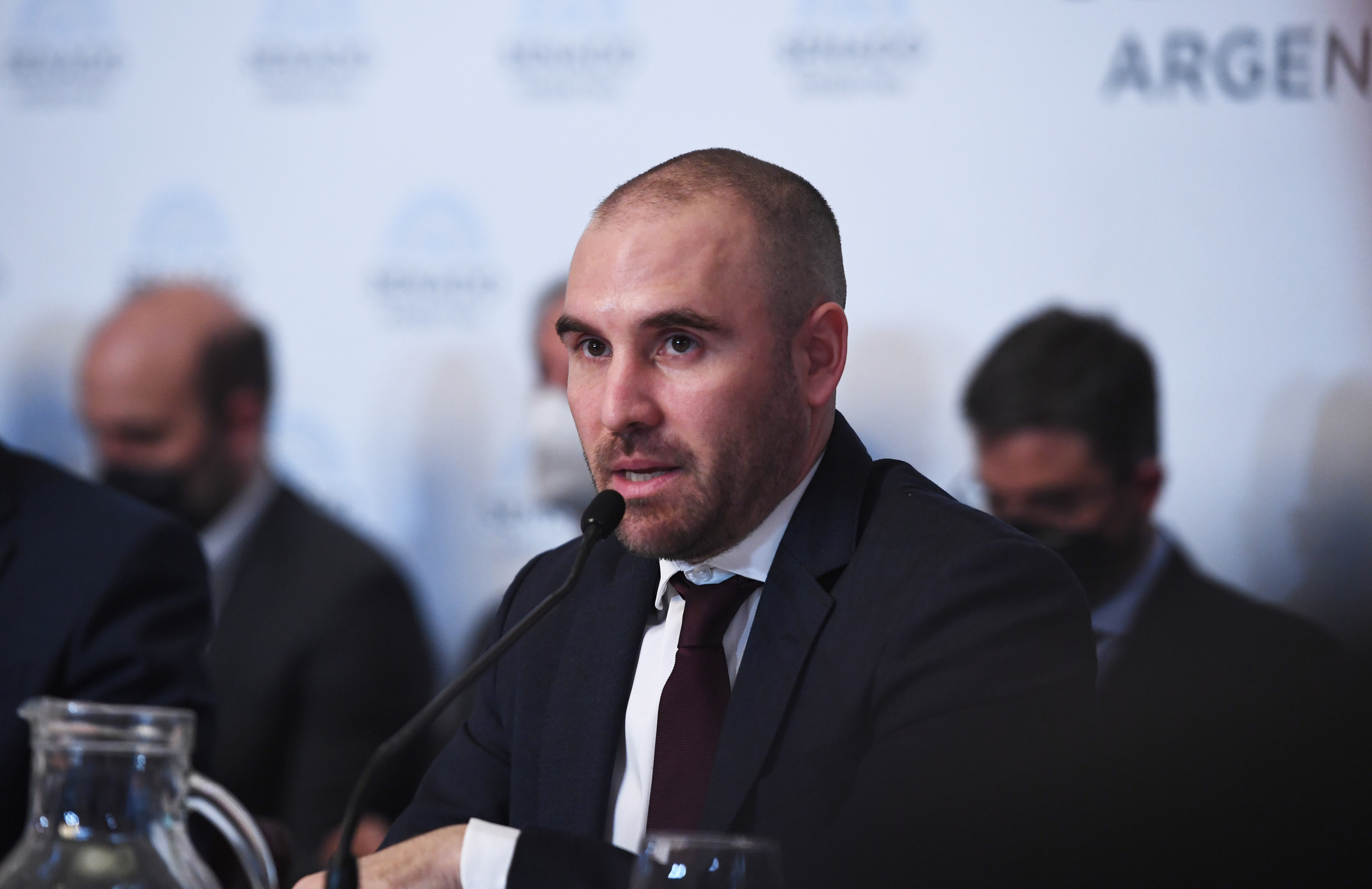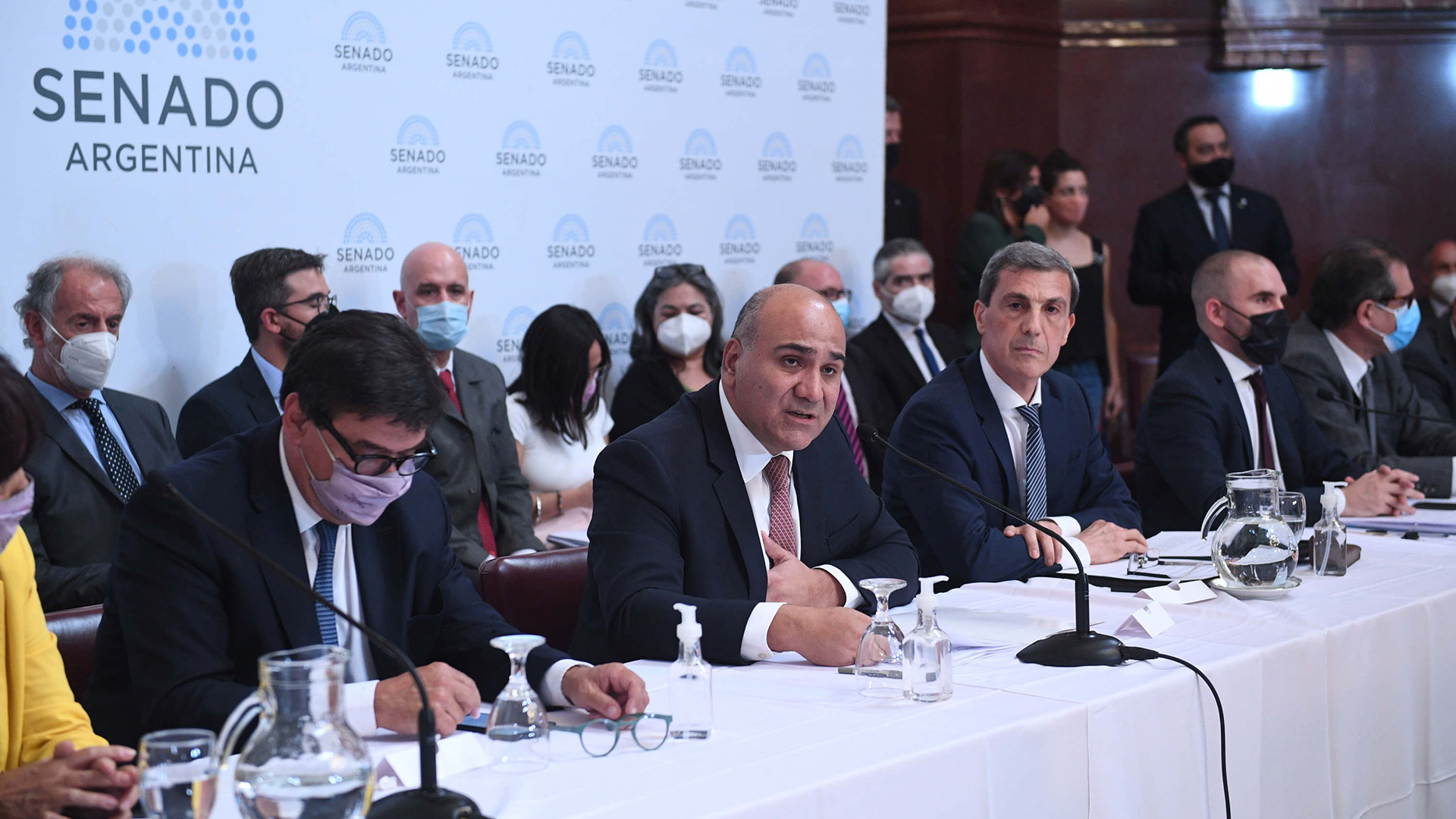With the presentation of Minister of Economy Martín Guzmán, the Senate began on Monday the debate in committee of the bill that endorses the agreement that the Government reached with the International Monetary Fund, approved on Friday by the Chamber of Deputies and which the government expects to sanction this week.
“The first objective is to address the balance of payments problem for 2022 and the next two years as a result of the 2018 Stand By agreement. Argentina has a record debt burden that accumulates maturities of USD 19 billion this year and USD 20 billion by 2023. These are such amounts that there is no possibility that the country can cope”, the minister began in his presentation.
“It implies a destabilizing potential with severe exchange-rate, social and inflation consequences. Argentina needs the ability to avoid a destabilizing shock. We seek to prevent Argentina from having a situation of deep currency exchange stress,” continued the head of the Treasury Palace.
On the other hand, the Minister of Economy spoke about the impact of the war in Eastern Europe on the Argentine economy. “The international context is complex. The pandemic generated major disruptions in the world economy, now the war between Russia and Ukraine, which involves international price impacts that impact the Argentine food basket,” Guzmán said.
“The war between Russia and Ukraine is present in Argentina, today it is seen in the prices of what is paid in everything that is related to commodities, such as products that consume wheat, eggs, milk, oils, the consumer basket,” he said in that regard.

“In this context of local uncertainty, contingencies must be dealt with. The last part of the negotiation focused on the contingencies of dealing with the scenarios that may arise. It is to be hoped that in such a circumstance the national government will have to act to deal with whatever arises,” the minister continued. At this time, the Executive Branch is expected to announce an increase in export withholdings for some agricultural products.
Asked about the possibility of increasing export duties, Guzmán replied: “There is no commitment made in the context of the program with the IMF on taxes or withholdings. The program establishes a set of commitments and goals, but it is the responsibility of the Government to design and implement a large number of aspects to meet the commitments,” he said.
At the first hearing, the Chief of Staff, Juan Manzur, and Guzmán appear before the Budget Committee chaired by Senator of the All Front (FdT) for La Rioja (FdT) Ricardo Guerra. In addition to Manzur and Guzmán, the Director of the Central Bank, Miguel Pesce, and the Director of the General Administration of Public Revenue (AFIP), Mercedes Marcó del Pont, are invited to the meeting that takes place from 15.02 in the Azul Hall of the Congress.
The aim of the ruling party is to have an opinion on Tuesday and turn into law by Friday the initiative that authorizes the executive branch to sign a new understanding with the IMF. The head of the ruling bloc, José Mayans, confirmed last Friday that he met with the head of the Senate, Vice-President Cristina Kirchner, and that he was instructed to give “prompt treatment” to the text approved by the lower house.
The head of the Treasury Palace, in any case, must defend a different bill to the one that was presented in Deputies. The ruling party needed to remove the article that attached the fine print of the financial program with the Fund in order to obtain opposition support. The average sanction, thus, included only the authorization for the refinancing of the debt. There was no parliamentary support for the technical agreement that the Minister of Economy worked for a year and a half with the IMF staff.

Guzmán was in charge of exposing to the deputies why the bill should have the agreement of Congress to avoid consequences for the economy, and he did so, even in his style, in harsh terms: “The alternative is a growth of uncertainty and does not result in anything better. On the contrary, it will generate a situation of deep exchange rate stress with consequences of inflation, economic activity, employment and poverty,” he mentioned before the plenary, in which legislators from La Campora did not participate.
“It is our responsibility to mark the potentially destabilizing situation if Argentina faces if the debt of 2018 is not refinanced. We face forking roads, it's a serious problem. This is a step-by-step solution and this is a very important one. The agreement that the Government brings today establishes a passable path”, he defended.
Although half of the parliamentary procedure has already been completed, the debate in the upper house will be framed in a countdown that sounds ever closer. March 21 and 22 are the dates foreseen in the schedule of payments to the IMF, and on which the Government should pay USD 2,786 million of debt maturities to the agency.
The Senate is expected to have an “express” treatment of the bill. This Monday it will go through committees, in a meeting in which the president of the Central Bank Miguel Pesce will also be present. Later in the week there will be the actual discussion of the senators to get an opinion and on Thursday it could be dealt with in the precinct.
On Friday morning, after a marathon session of more than 12 hours, the government managed to approve in the Chamber of Deputies the agreement with the IMF to refinance the USD 44 billion debt incurred by Mauricio Macri in 2018. The vote closed with 202 positive votes, 37 negative votes and 13 abstentions.
After maintaining their position in the strictest secrecy throughout the afternoon, Máximo Kirchner and the deputies of his space chose to go down to the compound at the last minute. The House voted negatively, as did two legislators from Patria Grande. The Frente de Todos had 28 negative votes and 13 abstentions in its ranks.
KEEP READING:
Últimas Noticias
Debanhi Escobar: they secured the motel where she was found lifeless in a cistern

The oldest person in the world died at the age of 119

Macabre find in CDMX: they left a body bagged and tied in a taxi
The eagles of America will face Manchester City in a duel of legends. Here are the details

Why is it good to bring dogs out to know the world when they are puppies



